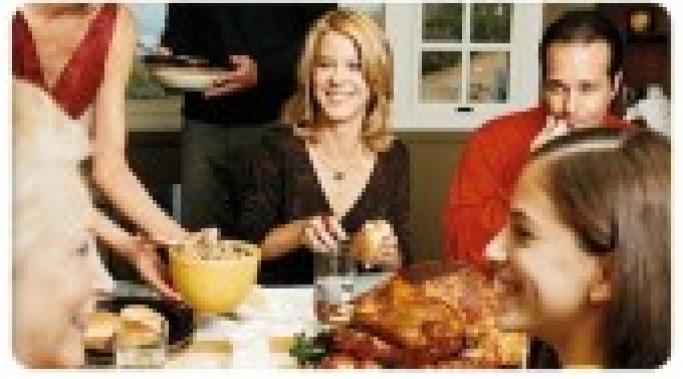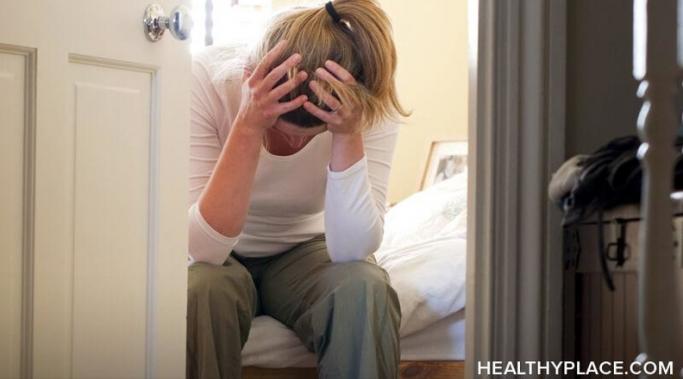It was 3 a.m., January 1, 2012. I had been struggling to sleep for hours. All had did though was constantly shift around in my hospital bed and throw covers on and off, as my head throbbed and waves of heat flushed my face. It left me hot and then freezing cold.
It was the last night of my hospital stay and I had gotten progressively sicker in the past few days. The nurses simply told me I must have the flu or something since I had a slight fever and struggled to eat — not a good thing for a recovering anorexic. I pushed the call button for the night nurse, hoping for some relief but knowing I had just taken a pain killer a few hours before and, therefore, there was nothing anyone could do. He brought me a box of tissues as I started crying and tossing around, saying "I guess this is what they call hitting rock bottom, huh?" He told me to go ahead and cry.
I had been in the hospital since December 26. It has been both the hardest and most rewarding thing I have ever done.
Surviving ED
There are times when your eating disorder and/or other co-morbid illnesses require inpatient psychiatric treatment. In an earlier post, I discussed my decision to enter an inpatient psychiatric hospital for anorexia, alcohol abuse treatment. In this video, I talk more about why I need inpatient eating disorders treatment.
In February 2010, I entered inpatient treatment for anorexia nervosa, anxiety, and depression. I felt like a complete failure that this was my sixth inpatient admission, and I vowed that it would be my last admission.
On Monday, I will once again admit myself to the hospital for six days of psychiatric treatment. It was a difficult decision to make, and one that many of us struggling with eating disorders and co-morbid illnesses often face.
I haven't been sober more than a few days each month since October. I have only eaten a handful of what would be considered real meals in several months.
I consume more calories in alcohol than food, and simply admitting that has to be one of the hardest things I have ever done.
The first step in recovering from any eating disorder is accepting that you do have an illness that deserves and needs treatment.
The next step is finding the appropriate people to guide you in recovering from your eating disorder. That can be very difficult. However, there are different types of help out there and I would encourage you to never give up trying to find what works for you.
Recovery from an eating disorder can be all-consuming at times. In this video, I talk about how you can and should balance recovery with real-life activities and how that balance can ultimately help you in your recovery from an eating disorder.
I panicked on Thanksgiving Day.
It was 1:15 p.m. I felt nothing but sheer terror. I looked longingly at my bed, warm and safe. The thought of facing all that food inexplicably terrified me. The fact that it was my first Thanksgiving without my husband, and therefore I would be alone did not help. I felt as if everyone would be looking me and thinking about how I had failed at my marriage.
I also was late. I was in charge of picking up the salad and pies, and I did not have time to do that and make it to the family meal by 3 p.m. The last thing I even wanted to see was a pie. I stood paralyzed in my bedroom. Stay or go?
I told myself to just breathe. I said that I could enjoy a normal Thanksgiving meal. So I called and spoke with my father, who said he would pick up the food, and got into my car and started the almost two-hour drive to my family's home for Thanksgiving dinner.
And I had a wonderful time.
My friend, Annemarie, recently died of anorexia nervosa at the age of 34. Although I knew that she was quite ill, her death still shook me to my core and made me think about my own struggles and triumphs with anorexia.
Annemarie was one of those people you couldn't help but love. She had an infectious, quirky sense of humor and enjoyed hanging out with people and listening to her beloved Grateful Dead. She also was an upbeat person, and was a strong source of support for me. Not too long before her death, she sent me a text message that read, "Always look on the positive side."
Millions of people will gather together with family and loved ones to celebrate Thanksgiving. I want to stay home and curl up with a good book. However, Annemarie would insist that I spend the day with my family and friends.
And so that is what I plan to do.
Surviving ED really is the fulfillment of a dream: to reach out to other people who have eating disorders, and to offer them both honesty and hope and perhaps help them feel just a little bit less alone in their own journeys of recovery.
Surviving ED is one-year old this week. The road of recovery has been long and winding, with many twists and turns, lapses and relapses, and picking myself up to try just one more time. The journey of recovery sometimes feels endless and tiring, and I know that it is hard to not want to give up.
However, at the end is freedom from anorexia and ultimately, a full and healthy life.
For weeks, I have struggled to do anything beyond the bare minimum. Eating disorders are in part coping mechanisms, and can be deceptively helpful in masking painful emotions. That can make recovery from an eating disorder very difficult, because most people struggle with painful emotions and would rather push these feelings aside than face them.
I always like to think I am different - but I am not - and that I can push through the emotions the recovery stirs up. Each time I begin the recovery process with a fierce determination to beat anorexia nervosa for the last time. I feel strong and sure as I start to eat regular meals and snacks and stop all related eating disorder behaviors, and I know in my heart that I will travel the road to full recovery without roadblocks or detours.
But emotions can only be suppressed for so long, and I inevitably become anxious and depressed as I begin to eat like a normal person. Determination fades and strength wavers as all the emotions that I couldn't feel while in the middle of my eating disorder come roaring back, leaving me cowering in the corner.







